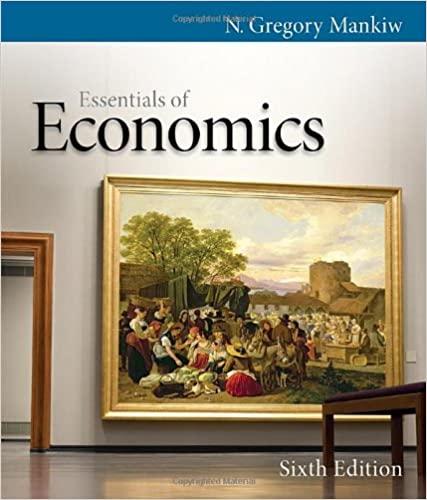The efficient markets hypothesis assumes that people buying and selling stock rationally process the information they have
Question:
The efficient markets hypothesis assumes that people buying and selling stock rationally process the information they have about the stock’s underlying value.
But is the stock market really that rational? Or do stock prices sometimes deviate from reasonable expectations of their true value?
There is a long tradition suggesting that fluctuations in stock prices are partly psychological. In the 1930s, economist John Maynard Keynes suggested that asset markets are driven by the “animal spirits” of investors—irrational waves of optimism and pessimism. In the 1990s, as the stock market soared to new heights, Fed Chairman Alan Greenspan questioned whether the boom reflected “irrational exuberance.” Stock prices did subsequently fall, but whether the exuberance of the 1990s was irrational given the information available at the time remains debatable.
Whenever the price of an asset rises above what appears to be its fundamental value, the market is said to be experiencing a speculative bubble.
The possibility of speculative bubbles in the stock market arises in part because the value of the stock to a stockholder depends not only on the stream of dividend payments but also on the final sale price. Thus, a person might be willing to pay more than a stock is worth today if she expects another person to pay even more for it tomorrow. When you evaluate a stock, you have to estimate not only the value of the business but also what other people will think the business is worth in the future.
There is much debate among economists about the frequency and importance of departures from rational pricing. Believers in market irrationality point out (correctly) that the stock market often moves in ways that are hard to explain on the basis of news that might alter a rational valuation. Believers in the efficient markets hypothesis point out (correctly) that it is impossible to know the correct, rational valuation of a company, so one should not quickly jump to the conclusion that any particular valuation is irrational. Moreover, if the market were irrational, a rational person should be able to take advantage of this fact; yet as the previous case study discussed, beating the market is nearly impossible.
QUICK QUIZ Fortune magazine regularly publishes a list of the “most respected” companies. According to the efficient markets hypothesis, if you restrict your stock portfolio to these companies, will you earn a better than average return? Explain.
Step by Step Answer:






